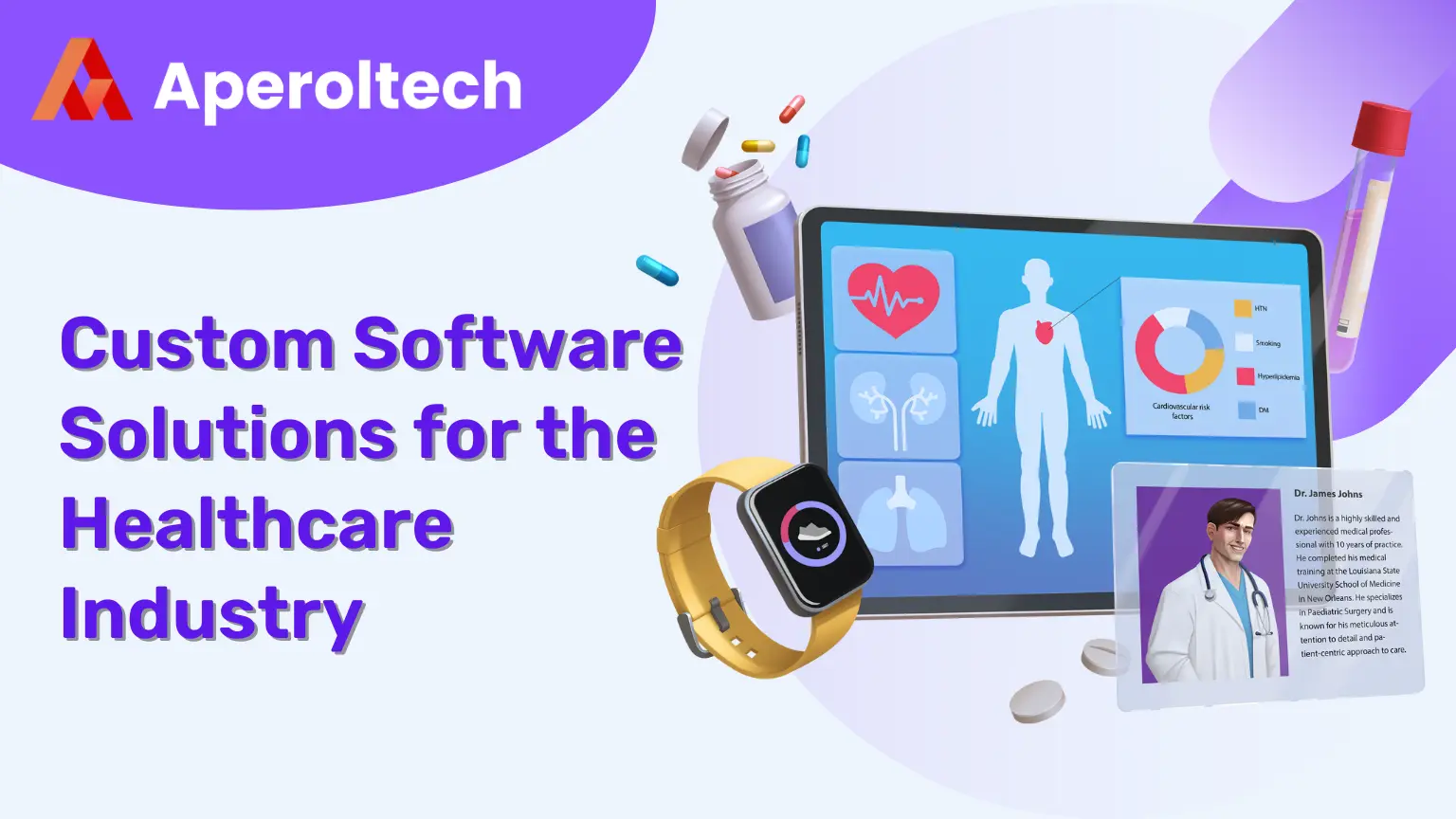Introduction to Custom Software in Healthcare
The healthcare industry is no stranger to the transformative power of technology. Digital solutions are at the heart of modern medicine, from diagnostics to patient management. Among these advancements, custom software healthcare stands out, offering tailored solutions to meet the unique demands of the medical field.
Why Healthcare Needs Custom Software
Addressing Unique Industry Challenges
Healthcare faces a myriad of challenges, from managing large volumes of patient data to ensuring seamless communication across departments. Custom software healthcare provides solutions that address these specific needs, unlike generic applications that often fall short.
Enhancing Patient Care and Operational Efficiency
Custom solutions enable healthcare providers to streamline operations, reduce errors, and improve the overall patient experience. Whether it’s a specialized app for chronic disease management or an efficient billing system, tailored software makes a difference.
Benefits of Custom Healthcare Software
Improved Patient Management
With healthcare software development, facilities can track patient histories, appointments, and treatments effortlessly. This enhances the quality of care and ensures that no detail is overlooked.
Streamlined Workflow and Reduced Costs
Automating repetitive tasks and integrating workflows minimizes time wastage, leading to significant cost savings.
Data Security and Compliance
Healthcare data is highly sensitive, and compliance with regulations like HIPAA is non-negotiable. Custom software ensures robust security measures are in place.
Types of Custom Software for Healthcare
- Electronic Health Records (EHR): Centralized platforms that store and manage patient data, ensuring accessibility and accuracy.
- Telemedicine Platforms: Custom telemedicine solutions connect patients and doctors virtually, bridging gaps in care delivery.
- Appointment Scheduling Software: Efficient scheduling systems reduce wait times and enhance patient satisfaction.
- Medical Billing Systems: Streamlining billing and insurance claims with automated software eliminates errors and accelerates payments.
Key Features of Medical Software Solutions
- User-Friendly Interfaces: Ease of use ensures that staff and patients can navigate the software effortlessly.
- Data Analytics and Reporting: Advanced reporting tools help healthcare providers make informed decisions based on real-time data.
- Integration with Existing Systems: Custom software seamlessly integrates with other tools and platforms already in use, ensuring continuity.
The Process of Custom Software Development for Healthcare
- Requirement Gathering: Understanding the unique needs of the healthcare provider is the first step.
- Design and Prototyping: Developing a prototype ensures that the software aligns with expectations.
- Development and Testing: Rigorous testing ensures the software is reliable and meets compliance standards.
- Deployment and Maintenance: Ongoing support ensures the software remains updated and functional.
Trends in Healthcare Software Development
- AI and Machine Learning in Medical Software: From predictive analytics to AI-assisted surgeries, the role of artificial intelligence is expanding rapidly.
- Blockchain for Secure Patient Records: Blockchain technology ensures tamper-proof and transparent patient record storage.
- IoT Integration in Healthcare: Connected devices, from wearable fitness trackers to smart hospital beds, are enhancing care.
Challenges in Developing Custom Healthcare Software
- Regulatory Compliance Hurdles: Adhering to regulations can be a complex process requiring specialized expertise.
- Balancing Usability with Functionality: Striking the right balance between a user-friendly interface and comprehensive features is essential.
- Cost and Resource Allocation: Developing custom software can be resource-intensive, necessitating careful planning and budgeting.
Choosing the Right Software Development Partner
- Evaluating Expertise and Experience: A partner with a proven track record in medical software solutions ensures quality and reliability.
- Importance of Industry-Specific Knowledge: Understanding healthcare’s unique challenges is crucial for developing effective solutions.
Case Studies: Successful Custom Software in Healthcare
- Example 1: Transforming Patient Care with EHR: How a customized EHR system revolutionized patient care in a large hospital.
- Example 2: Revolutionizing Rural Healthcare with Telemedicine: A telemedicine platform brought quality care to underserved areas.
Future of Custom Software in Healthcare
- Personalized Medicine Through Advanced Software: Custom software will play a pivotal role in developing personalized treatment plans.
- Global Trends Shaping Healthcare Technology: Emerging trends like augmented reality and wearable tech will redefine the industry.
Conclusion
Custom software healthcare solutions are not just a luxury but a necessity for the industry. By addressing unique challenges, enhancing efficiency, and paving the way for innovation, these solutions are transforming the face of modern medicine.
FAQs
- What is custom healthcare software? Unlike off-the-shelf solutions, custom healthcare software is tailored to meet the specific needs of medical institutions.
- How does custom software improve patient care? It enhances patient management, reduces errors, and ensures efficient communication.
- What are the costs involved in developing custom software for healthcare? Costs vary based on complexity, features, and the development partner’s expertise.
- How is compliance ensured in healthcare software? Compliance is ensured through adherence to regulations like HIPAA and regular audits.
- What are the future trends in healthcare software development? AI, blockchain, IoT, and wearable technology are set to revolutionize healthcare.




No comment